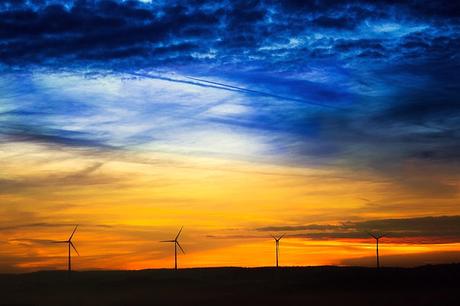Natural resources are utilized by human beings either directly or indirectly for survival. The examples of natural resources are air, soil, water, sunshine, coal, plants, animals, and minerals. Additionally, nature acts as the sole provider for our fundamental needs which includes food, clothing and shelter.
Everything we utilize in our day to day lives is drawn from the available natural resources. Besides, the artificial resources are derived from the available natural resources. However, we never think that these resources might get depleted eventually if used irresponsibly. The surging global population, rapid urbanization and industrialization have created an increased demand on the available resources.

Proper steps need to be taken to ensure that we continue enjoying these resources and failure to do that, the future generation will face tremendous hardships. Natural resource conservation ensures that the ecological balance is maintained.
Below are 30+ ways to save and conserve natural resources.
- Use of alternative sources of power such as solar and wind energy. These alternative sources of energy are bio friendly particular because they do not produce harmful gases that damage the ozone layer. They are better compared to burning fossils such as coal and charcoal. They are also cheap to use, not easily depleted and are renewable.
- Plant trees to prevent soil erosion. This entails planting trees and vegetation to control soil erosion caused by wind and water. Trees and vegetation are essential in the maintenance of the ecosystem. They also act as home for most insects, birds and some symbiotic plants. This creates a habitat for wildlife therefore conserving wildlife altogether.
- Practicing of judicious ways to conserve water in our homes. This entails simple practices like ensuring that taps are closed when they are not in use. Taking less time in the shower aids to conserve gallons of water per month. Reusing some of the water for watering the kitchen gardens in our homes is also an important practice.
- Use pipelines to transport oil. Many oil leaks are as a result of transporting oil using ships. The oil leaks are detrimental to the flora and fauna. Most of this species die as a result of this oil spills. Pipelines’ are examples of modern ways of transporting oil.
- Growing of vegetation in catchment areas. Catchment areas act as a source of water that flows in the streams, rivers and oceans. Vegetation in the catchment areas allows for sufficient percolation of water into the deep soil layers allowing for the formation of ground water. Water is life. Protecting the catchment areas ensures that our taps do not run dry.
- Treatment of industrial wastes and sewages before they are released in the water bodies. Rapid industrialization has resulted to wastes that are harmful to the ecosystem. The release of these effluents directly into the water bodies has led to massive water pollution to some areas in the world especially in developing countries. Therefore, industrial and human waste should be treated to prevent thermal and chemical pollution of water.
- Rain harvesting. This is an important practice of ensuring water conservation. It is done by harvesting of rainwater during the wetter seasons of the year and using it during the dry seasons. This minimizes the usage of water from the water-bodies. The water can be used for irrigation in our farms and also watering the lawns in our homes.
- Practice of in-situ or on site conservation of wildlife. This entails conservation of animals and plants in their natural habitats. It is also involves protecting the protected areas set aside. They include areas such as wildlife sanctuaries, parks, biosphere reserves among others. Certainly, this will help conserve the endangered plant and animal species.
- Practice Ex-situ or offsite conservation of wildlife. It involves the conservation of animals and plants outside the natural habitats. These includes areas such as pollen banks , DNA banks, zoos, seed banks, botanical gardens, tissue culture banks among others.
- Formulation of policies to regulations to curb poaching. Poachers continue to kill many animals such as elephants, rhinos, leopards for their horns and skin which are sold off in the black market. Poachers are a major threat to our biodiversity as they are slowly making some species extinct. These regulations will ensure that poaching is done away with.
- Practice judicious ways of conservation energy. Such practices include switching off the lights when not in use, unplugging electrical appliances when not in use. Plugged-in appliances continue to use electricity even when not in use. Other practices include spending less time when taking hot showers.
- Use of biogas in our homes. Around the World, Liquefied Petroleum Gas (LPG) is the most rampant source of fuel in our homes today. Continued LPG use results to the depletion of the oil reserves, biogas is therefore an alternative. Biogas is mainly produced from cattle dung, biogas plants are a source of both biogas and manure.
- Use of bio-fuels. For more than a century, fossil fuels have been a major source of energy. However, they are depleting rapidly, this calls for alternative sources of fuel such as bio-fuels which are mainly from plant species. Bio-fuels are known to be bio friendly and they reduce the occurrence of air pollution.
- Ensure the recycling of wastes. These wastes include plastics, paper bags that have resulted to tones of garbage. Recycling entails re-manufacturing of already used materials. This reduces the amount of waste available reducing soil and water pollution.
- Planting trees in home compounds. Trees provide shade and perfect air conditioning for our homes. Trees ensure that there is clean air for us to breathe creating a perfect air conditioner. This helps to cut down the electricity costs from the use of air conditioning appliances.
- Make use of electronic mails. Electronic mails are paperless and present a good way to minimize the usage of paper. Technology has made this possible reducing the usage of paper and envelops. This has reduced the production of paper and also minimized cutting down of trees.
- Purchase hybrid cars instead of the conventional cars. Hybrid cars use a combination of electricity and minimal amounts of gas to run them. This is a break from the use of petroleum products that are mostly used to run cars. The hybrid cars are a great deal in conserving fossil fuels.
- Use earth-bags instead of plastic and paper bags. Most of the waste comes from excessive use of plastic bags. Carry an earth-bag each time you visit the grocery store. Products should also be wrapped in materials that can be recycled.

- Use energy saving fluorescent bulbs. Energy saving bulbs may cost more money than the old bulbs. However, they will minimize electricity bills thus saving energy. They also last longer ensuring that fewer purchases are made.
- Industries can ensure the make production efficient to reduce wastage. This will ensure limited harvesting of natural resources and also reduce wastage.
- Use ceramic cups to consume the daily cup of coffee rather than using disposable mugs. This ensures that there is less waste and also ensures the overall conservation of the ecosystem.
- Water the lawns and farms in the evening. Watering the farm when it is dry and hot results to increased water evaporation and a lot of water is used for the same. During the evening, the weather is much cooler reducing evaporation thus conserving water.
- Reuse old furniture. It is common to dispose of old furniture and opt for new furniture. The old furniture should be sold off for use or donated to charity where they can be reused. The old furniture can also be re-sculptured and redecorated to save wood. This will reduce deforestation.
- Practice crop rotation. Planting the same crops for a long period of time reduces soil fertility. The practice of crop rotation will restore and maintain soil fertility thus conserving the soil.
- Translocation of wild animals. The growing population has led to human encroaching on the wildlife habitat. This has resulted to human-animal conflict where the wildlife are killed by humans as a way of protecting themselves from them. Translocation involves moving wild animals to adjacent areas and fencing to curb the conflict.
- Encourage the use of drip irrigation. Some of the water from daily activities may be used in grip irrigation. This promotes water conservation.
- Establish special schemes to preserve endangered plant and animal species. This includes botanical gardens, sanctuaries that may be established to protect the endangered species so that they can be available for future generations.
- Constructions of reservoirs. This will regulate the amount of water that is used daily. The dams also act as a source of hydro-electric power which is another alternative source of energy.
- Formulate regulations to stop overfishing. Overfishing interrupts aquatic life and depletes the fish available in our water bodies. In some cases it poses a threat to the endangered aquatic species. Regulations to avoid over fishing should be put in place.
- Control the number of cattle in a household to prevent overgrazing. Overgrazing destroys agricultural land making it prone to soil erosion.
- Constructing terraces and gabions in sloping land. This will prevent soil erosion. We should always strive to protect the environment. We should therefore embrace these methods to protect the natural resources.

